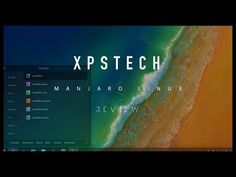Best Linux distros of 2024 – GeeksforGeeks

Emerging as a beacon in the realm of open-source operating systems, the best Linux distributions of 2024 offer versatility, stability, and innovation for every type of user. Here we explore some of the front-runners that have won the admiration of users and tech critics alike on platforms such as GeeksforGeeks.
Starting with Ubuntu 24.04 LTS, this ever-popular distribution continues to provide an easy-to-use experience while incorporating cutting-edge features like improved Containerization and a fortified security profile, making it an ideal choice for both newbies and seasoned professionals. It adeptly balances simplicity with functionality, retaining its position as a go-to for many Linux admirers.
Next in line is Fedora 36, known for its robust performance and bleeding-edge software offerings. It’s the preferred choice for developers who want to stay ahead of the curve with the latest programming languages and software development kits. With its focus on workstation performance and a strong emphasis on open-source principles, Fedora never fails to impress those who seek innovation.
On the minimalist front, Arch Linux 2024 stands tall with its principle of simplicity and full user control. It’s designed for Linux enthusiasts who prefer building their system from scratch. With its rolling release model, Arch ensures users are always up-to-date without waiting for major version releases.
Tailored for the security-conscious is QubesOS 5.0, a Xen-based distro that compartmentalizes applications into isolated VMs, providing enhanced security by design. It’s touted as one of the most secure operating systems available – a fortress for personal computing in an age teeming with cyber threats.
For those eyeing enterprise solutions, CentOS Stream 11 takes center stage with its stronghold in server environments and unmatched stability derived from RHEL (Red Hat Enterprise Linux). As CentOS shifts more toward a rolling release model similar to Fedora, it now reflects what will appear in future RHEL versions.
Lastly, SUSE Linux Enterprise 16 rounds off our list by serving as the multipurpose powerhouse suited to both servers and desktops. It brings together scalability, performance, and reliability in an enterprise-grade package that remains second to none when it comes to deployment in professional settings.
As we race into the future with evolving technological demands, these Linux distributions provide not just a variety of flavors but also cater to specific needs that range from personal use to enterprise-level deployments. They are at the forefront of software freedom and innovation – pillars that will continue to support the growth of Linux for years to come.






